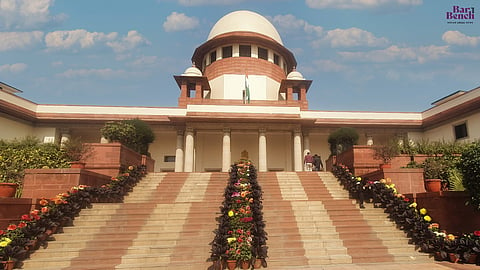
- News
- Columns
- Interviews
- Law Firms
- Apprentice Lawyer
- Legal Jobs
- हिंदी
- ಕನ್ನಡ

The Supreme Court has cautioned government bodies and agencies from backtracking on their undertakings or cancelling contracts with the change of person in power [CIDCO v. Shishir Realty Private Ltd].